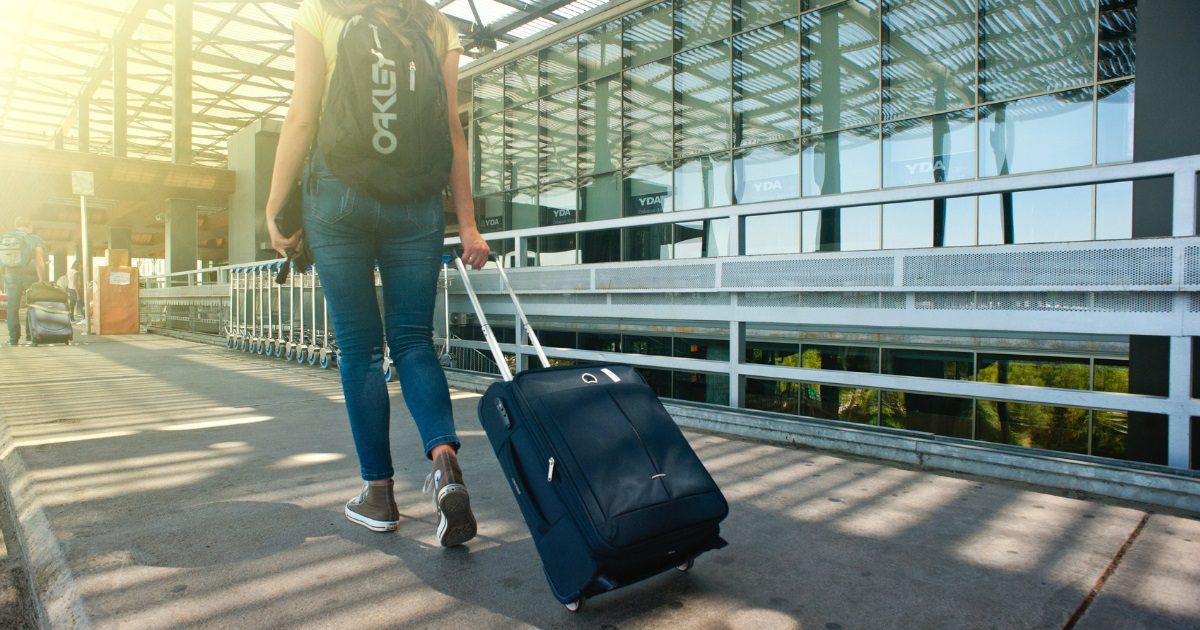Moving to a new city in your home country is hard enough. But packing all your belongings to live on the other side of the globe sounds incredibly overwhelming. The idea of packing boxes, filing stacks of administrative paperwork can understandably feel daunting. However it doesn’t have to be!
In this article we give you an overview of regulations that apply to relocation in China, advice on how to prepare required documents for customs clearance and applicable import duty so that you can breeze through the customs process when you arrive.
Take a look at some of our previous articles: How much money can I bring in and out of China
Relocating to China: Getting an Import Permit
The first thing to know is that only long-term non-residents are allowed to import their personal belongings duty-free. Long-term visitors usually include foreigners, citizens from Hong Kong, Taiwan, Macau and returning Chinese staying in China for at least 12 months. To bring household goods into China, such visitors need to formally apply for an Import Permit with the local Customs office.
Having said that, it is important to know that this application can only be filed once you have secured your work and residence permits. Obtaining the final residence permit generally takes 3 to 4 weeks after landing in China. Therefore, any item required for immediate use should be taken as accompanied baggage.
How to Apply for an Import Permit?
Once you have your residence permit in hand, you can file an application with Chinese Customs in person or through a designated relocation agent. According to the Notice on Approval of Entry/Exit Articles for Official and Personal Use by Resident Offices and Non-Resident Long-Term Visitors, the following supporting documents should be submitted:
- Passport (original)
- Resident Permit (original)
- Work Permit (original)
- Representative card (only required for RO employees)
- Application form with the shipper’s signature and company chop
- Ocean Bill of lading and/or Air Way Bill and detailed inventory packing list
Obtaining an Import Permit usually takes 3 working days and is free of charge.
Important Considerations
- You must ensure that your work permit and residence permit are valid for at least 365 days. If the validity of any of these documents is less than 12 months, the Import Permit application will be rejected
- If you are a returning Chinese, you will have to provide evidence that you have been working outside China for at least one year. You can for example provide the overseas work permit when submitting the application
- The Import Permit should be applied for in the city where your work and residence permit are issued from. If you are based in Hangzhou but customs clearance is arranged in Shanghai, you still need to apply for the Import Permit in Hangzhou
- Long-term non-resident are only entitled to import one air and one sea shipment for their personal and household effects. In other words, if you previously imported household goods into China a few years ago, went back to your home country and got a new job in China, your next shipment would now be 100% dutiable
- The shipment should be arranged within 6 months of obtaining the permit
Prohibited Items
- Weapons, firearms, ammunition, drugs and narcotics
- Counterfeit or pirated goods
- Pornographic materials
- Materials found to be morally or politically offensive
- Endangered species, alive or dead, certain milk powder and meat products
- Plants and seeds
Restricted Items
- Books: no more than 50 books can be imported duty-free for foreign passport holders. Anything over 10 books will be dutiable for returning Chinese
- CDs/ DVDs: no more than 100 pieces for foreigners. This number goes down to 20 for returning Chinese.
- Grand piano: the shipper should prove he is a professional musician or music teacher.
- Alcohol: import restrictions vary from city to city. Currently only Shanghai and Nanjing allow alcohol imports via sea route
- Food: can be imported in small quantity, provided the products are dry goods, canned or vacuum packed or in sealed packaging
Please note that most of the above restrictions do not apply to diplomatic shipments.
Dutiable Items
A number of household and personal items are subject to import duty. The duty is based on the value assessed by Chinese customs at the time of inspection. It is thus crucial to ensure that your packing list is as detailed as possible when relocating to China. For example, the list should not just state “television”, but rather “C652 Series 6 40″ Full HD LCD Samsung TV”. The same applies to other large furniture and electronic devices. By providing a detailed description of each product you are likely to save considerably on the final taxes and duties levied on your overall shipment.
It is also worth noting that according to China Customs regulations, importation of household goods should be limited for personal use to the extent of a “reasonable quantity”. This can lead to various interpretations on-the-ground. For example, if your shipment contains 2 TV screens, customs officials might consider the items as commercial goods and will levy higher duties.
Below is a non-exhaustive list of dutiable items and their corresponding duty rate.
You can check the full list of dutiable items and latest tax rates on the Chinese Customs website. (Download only available in Chinese).
Customs Clearance Process
Your shipment has arrived and is ready for customs’ inspection. But before you can bring back all your goods home, you will need to provide authorities with a several documents for customs clearance. Required documents vary whether you are a foreign passport holder, diplomat or returning Chinese.Required documents for customs clearance:
- Passport with residence permit (valid for at least 12 months)
- Employment Certification or Appointment Letter from a Representative Office (preferably in Chinese)
- Health Certificate
- Import Permit
- Ocean Bill of Lading/Air Way Bill
- Arrival Notice – to be completed by the shipper upon arrival at the port of entry
- Baggage Declaration Form – obtained upon arrival and stamped by Customs
- Detailed Inventory list (in English or Chinese)
Any discrepancy between the inventory list and the actual shipment can result in confiscation or penalties. If customs find no irregularity, clearance should take between 3 and 5 working days for air shipments and between 10 and 15 working days for sea shipments.Required documents for customs clearance:
- Diplomatic Officer Certificate
- Passport with Diplomatic Visa and Card
- Import Permit (obtained from the Embassy or Consulate)
- Notification Letter from the ship line (available once the vessel arrives in port)
- Ocean Bill of Lading and/or Airway bill
- Detailed Inventory – translated in English or Chinese
Unlike regular shipments for foreigners, diplomatic shipments may be imported tax-free and without inspection.Required Documents for Customs Clearance:
- Chinese Residence Certificate
- Passport
- Import Permit
- Visa/Residence permit – proving overseas residency for at least a year
- Baggage Declaration Form – obtained upon arrival and stamped by Customs
- Ocean Bill of Lading and/or Airway bill
- Detailed Inventory list (in English or Chinese)
Frequently Asked Questions – Relocating to China
Can I import my car in China?
Technically speaking yes. Importing a vehicle in China is possible but likely to turn into a toilsome journey. Currently only diplomats can bring their personal vehicle in China relatively hassle-free. If you are a regular passport holder you will have to consider the following:
- You have to prove that the car is less than a year old and in good condition. Old cars cannot be imported
- Your car must meet environmental and safety standards set by the Ministry of Transport and the Ministry of Environmental Protection
- Right-hand drive vehicles cannot be imported
- You must inform Chinese Customs of your intention to import a vehicle prior to leaving your home country. You then need to apply for a separate vehicle import permit which will involve some more paperwork
Taking administrative red tape and high import duty into account, you might be better off selling the car before relocating to China. You always have the option to buy a new vehicle in China if you need to drive on a daily basis. Make sure to check out this article to learn more about getting a Chinese driving license.
Can my spouse apply for an Import Permit?
Yes. Spouses relocating to China on a dependent visa (Q or S) are subject to the same rules as their partner. As long as their residence permit is valid for 365 or more, they can apply for an Import Permit.
Can relatives send me packages?
Family and friends back home can send you packages but customs regulations apply. The package value should not exceed 1,000 RMB (800 RMB if sent from Hong Kong and Macau). Only 500 RMB worth of goods can be sent duty free (down to 400 RMB if sent from Hong Kong and Macau).
Conclusion
Just as with any other country, relocating to China requires some homework and preparation. Familiarizing yourself with prohibited/restricted items will not only help you decide what to pack but also avoid any unpleasant surprises during customs clearance. As import policies vary in different entry ports across the country, it is a good idea to seek professional help to assist with your move.Need advice on setting up your China business? Get in touch with our team for a consultation and follow us on social media to receive the latest news.
Our experienced team has the necessary expertise and the know-how to support you with your business – have a look at the services we offer.
Also, don’t forget to follow us on social media to receive all the latest updates!
See how much salary you receive after tax and check your company value without leaving WeChat!
Also, our Mini Program can estimate the salary in your industry, for your experience level and position. A huge help for salary negotiations!







